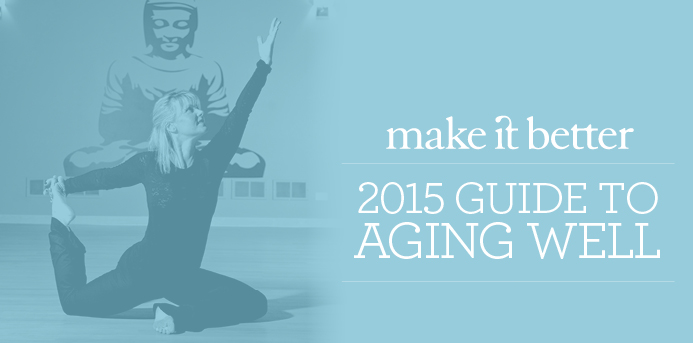A Stanford University psychologist named Kelly McGonigal gave a memorable 2013 TED Talk about stress and how it’s been proven to be harmful to health—but only when the stress-sufferer believes that stress is harmful to health.
She referenced a study of 30,000 adults who were asked to report their stress levels and to share if they believed stress to be harmful to their health. Those who experienced high levels of stress and believed that stress was bad for them had a 43 percent increased risk of dying. Those in the study who experienced a lot of stress but did not view it as bad for their health fared much better, health-wise—in fact, they had the lowest risk of dying of anyone in the study!
What this exposes about the power of our thoughts and attitudes relates not only to stress, but to any of the beliefs we form about ourselves and the world around us—including our beliefs about the aging process. As one of the experts we interviewed for “Is Age Really a State of Mind?” says: “I think a strong portion of our health is dictated by the positive or negative messages we give ourselves.” If we tell ourselves that getting older means we’ll suffer cognitive declines, well, we just may be right.
Almost all of the experts we interviewed asserted that continuing to stay engaged in life and involved in the activities that make us happy are some of the best ways to stay sharp and fulfilled as we get older. Of course, that’s not to say that eating right and exercising both our bodies and minds don’t influence the way in which we age— they absolutely do. “The 5 Best Ways to Stay Healthy As You Age” offers tips to this end.
What’s your take on aging? Do you agree that “age is a state of mind”? Please share your thoughts with us on Facebook or Twitter using the hashtag #AgingWell.
Articles
- The 5 Best Ways to Stay Healthy as You Age
- Alden Estates: Why Post-Surgery Joint Replacement Rehab is Essential
- Is Age Really a State of Mind?
- Improv Comedy for the Young at Heart
- How to Truly Bond With Your Grandkids
- The Best Nontraditional Places to Retire
- Why You Should Consider a Geriatric Care Manager
- 6 Best Apps for Seniors
- When Will I Be Ready? Considering the Move to Senior Living
More from Make It Better:

